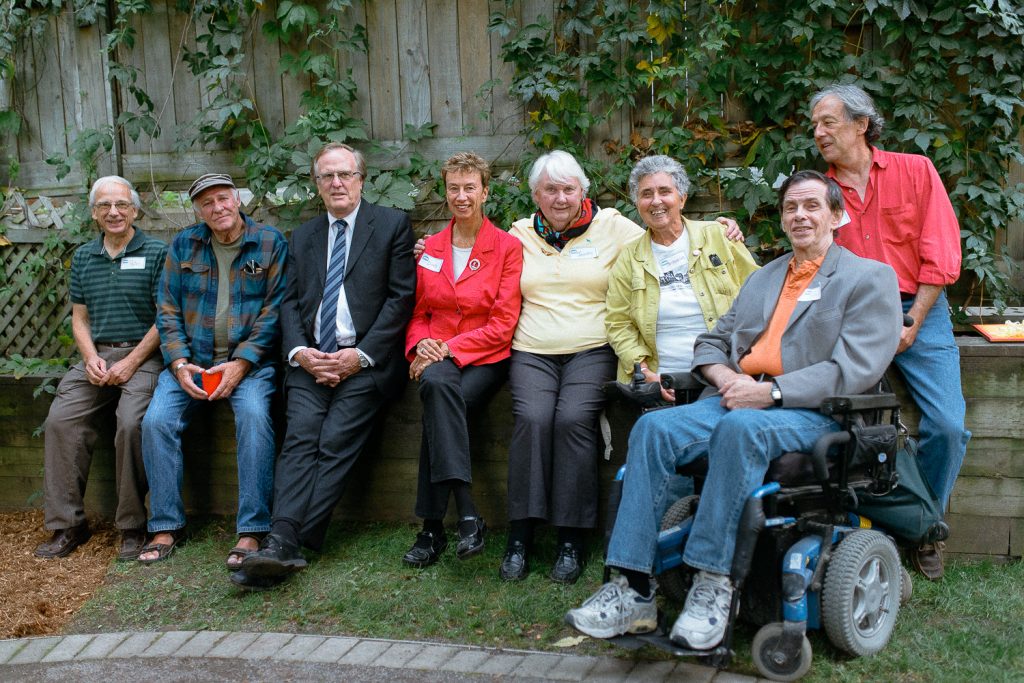History project marks CCOC’s 45th anniversary
By Anita Brown
The Centretown Citizens Ottawa Corporation, a leading affordable housing supplier in the city for nearly half a century, has embarked on a history project to mark the organization’s upcoming 45th anniversary.
The project will include a book, interactive web content and videos that capture the corporation’s impact on the capital’s urban development.
The non-profit group manages nearly 1,600 low-cost units that are home to more than 2,500 local residents.
Meg McCallum, director of membership and communications at CCOC, said the organization has been spearheaded by strong leaders for years. But as the CCOC began to see some of these veterans of the corporation leave, it wanted a way to document their legacy.
“When people started retiring, we said: ‘How do we pass on the message to the next generation . . . coming up behind us?’” McCallum said. “So we decided to put together this history book project to really get the stories down.”
Board volunteers, staff members and tenants will be among those interviewed for the project, McCallum said.
CCOC began with a group of passionate community members who opposed the rapid development of Centretown in the 1970s. The activists worked with the city to create a thriving downtown area while keeping the original integrity of the neighbourhood. The group went on to form CCOC to ensure that affordable housing would always remain attainable in Ottawa.
“It was a movement that came out of a community,” said McCallum. “So now we’re able to hear the stories straight from their mouths and write it all down.”
The organization has hired an outside communication company, Cartouche Media, to produce the series of videos. The complete film, which will be released in increments as four short videos, is set to debut in 2019 for the corporation’s 45th year.
The book, which will also be released in full in 2019, will have its 16 chapters posted to the organization’s website month-by-month leading up to the final publication.
“We’re working with writers who are interviewing these key people and telling the story of what happened over the first 40 years,” said McCallum.
One of those writers is historian Christopher Ryan. He is working alongside Robert Smythe on the project to uncover and document the organization’s rich past.
“When I got into this project, I really didn’t anticipate how fun the story would be. But it’s been quite interesting,” Ryan said.
He said he is documenting the organization’s difficult beginning, as well as the ability of those involved to persevere through it all.
“They’ve always been about adaptation… and creativity,” said Ryan. “It’s always about finding ways to survive and thrive when things don’t come easily.“
Ryan said doing the research for this project has helped him to learn how important CCOC has been to the community.
“They’ve shaped Centretown over the years and they are absolutely an institution in this neighbourhood,” said Ryan. “I think there’s a history that needs to be told.”
Catherine Boucher has been part of the team that helped to build the organization’s reputation.
Boucher worked at CCOC for 30 years, serving as executive director in her last two decades there. She is one of the former employees being interviewed for the project.
When Boucher began working in 1978, she said the organization owned 35 units in the city. When she retired in 2009, CCOC had about 1,500.
“We grew and became more of a community resource and part of the social fabric of Centretown,” she said. “We kept Centretown a very vibrant…inclusive…residential place.”
Boucher said the history project is an opportunity to remind people of the need for affordable housing and for supporters to continue to develop their voice in the city.
“My whole life was consumed by CCOC for 30 years,” said Boucher. “I’m very proud of the legacy that is there and I’m very proud to see CCOC continue that work and have this history behind it.”

